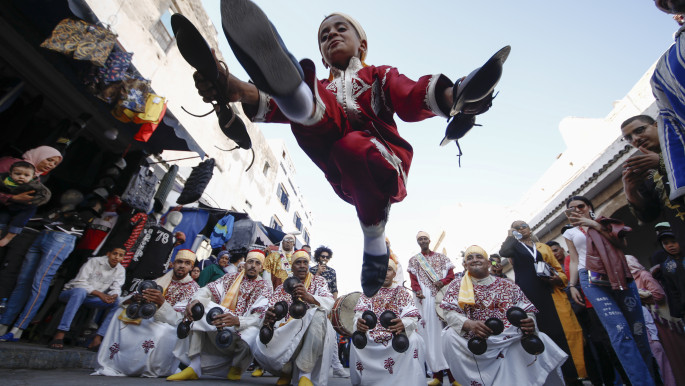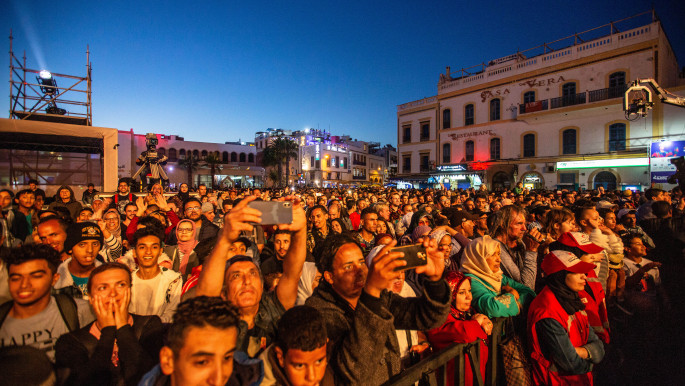Morocco's Gnaoua Festival: Fusing global sounds under one roof
Often, Gnaoua groups – would invite said musicians to collaborate with them onstage and merge their two respective styles together.
To define Gnaoua, it is a deeply spiritual musical genre dedicated to healing in prayer within the mostly Sufi Muslim sect in Morocco and sub-Saharan West Africa.
 |
Typically, a song will repeat the same structure and phrase over and over again for minutes, sometimes even hours. The groups are led by Maa'lems, who are highly revered and respected musicians, and even have superstar as well as saintly status in Morocco.
For a small town such as Essaouira, you'd expect a grand affair what with Gnaoua being the biggest event of the year. And it's quite a spectacle: there are traditional Gnaoua players that line the streets with Krabeb cymbals, Gimbri basses, and traditional African drums, whether that's young street performers jamming, instruments on sale in music shops on the small alleyways or artists performing at the festival.
 |
|
The main draw of the festival – and the one that drew the largest audience – was the Grammy Award winning Malian desert blues group Tinariwen. With a new album out in September, they played a mixture of new material as well the classics from their back catalogue stretching back forty years.
The group was very much on form on the night with a receptive audience, who plays for close to nearly two hours. On their encore, they're joined by Maalem Mustapha Bakbou and his Gnaoua group, jamming together, merging Gnaoua and Desert Blues together whilst dancing together onstage. It's a sight to behold.
Another big name on this year's bill is probably the most well known Gnaoua Master in Morocco, Maalem Hamid el Kasry. He walks onstage with his group performing an Aada, which is a procession of drums, karakeb cymbals that lasts around 15 minutes or so. After which, he plays a series of songs and in between, speaking to the audience in Moroccan Arabic.
There's a real family atmosphere at this year's festival with almost every demographic present, young and old, male and female, a real 50-50 split and it feels totally safe as there's a strong security presence not just at the festival site, but throughout Essaouira.
 |
|
Maalem Rachid Hamzaoui played an intimate Lila night that's so discrete and low profile that no filming and cameras were allowed whatsoever. But that only added to the mystique as Rachid played alongside his two daughters Asma and Aisha for an hour to a well-attentive and seated audience. For those in attendance, it's a special evening of tasting the true Gnaoua experience.
Closing the festival on the final day was Jamaican fusion band, Third World. Being true veterans of the music world, having formed in 1973, they've been there and done that and bought the t-shirt, which therefore places them as one of the greatest reggae groups of all-time. Not only do reggae songs get played including covers such as Jammin by Bob Marley, but there are even renditions of classical music numbers belted out by leader singer, AJ Brown.
Everyone is almost speechless as his vocals on operatic numbers are belted out with the same vocal range and gusto as any opera singer out there.
Twenty two years strong and Gnaoua Festival is as strong and as popular as ever worldwide. There's no doubt that if they wanted to, they could easily go on for another 22 years and beyond.
Yousif Nur is a freelance journalist, with a particular focus on music and culture in the Arab World. His journalism work has been featured in The Guardian, Telegraph, Dazed & Confused, Middle East Eye, Vice amongst many others.
Follow him on Twitter: @yousifnur

![sudan women [getty] sudan women [getty]](/sites/default/files/styles/image_330x185/public/media/images/5019D7F4-52AF-4377-8A05-885D27476479.jpg?h=d1cb525d&itok=tKXV7r-W)
